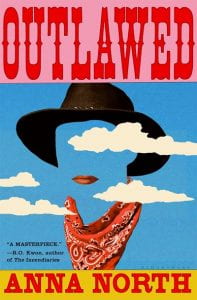They shouldn’t be, but I can’t escape the feeling that they are.
Still, hearing that the public and even the government considers TLs to be an “invisible profession”, and that even the publisher Scholastic referred to TLs as an endangered species, provokes an instant flare of indignation, rage even.
Context is everything: most government schools in Tasmania do not have a full- or even part-time teacher librarian on staff. They’re simply not funded, and are therefore low in priority when principals allocate school budgets.
Despite the fact that successive state governments claim Tasmania’s low literacy and numeracy levels are a high priority.
The ACER review of 11-12 education in Tasmania includes a submission from ALIA/ASLA Tasmania which reported that
increasing numbers of students enrolled in pre-tertiary and vocational subjects […] are not reaching adequate standards
for requirements with study and research upon entry to those subjects, such as:• many students entering Year 11 are not confident in using traditional ICT productivity
software [eg Office 365/email/word-processing/presentation styles, image manipulation or
spread-sheeting data]; and
• many students do not have the knowledge and skills in using online libraries and their
gateways to networked database subscription services that are critical requirements for
research at this level.Increasingly, students report that they did not have exposure to formal library programs or pathways planning in Years 9-10 to provide that scope or sequencing or transitioning of the teaching
of information skills and the acquisition of digital literacy.
It also notes that only 8 government high school libraries are staffed with a teacher librarian, and most of those have other teaching loads. The majority are staffed by library technicians or library aides, including district and remote schools connected to LINC (Libraries Tasmania) as a community hub.
This is in direct contrast to independent and Catholic sector schools, which take pride in their school libraries as “a symbol of the institution’s commitment to managing information for knowledge and learning” and are “sources of achievement of the social capital to the school community, a tangible indicator of the parent-giving, levies and they contribute to competitive edge with like-schools or colleges.” (ACER Review, 2016) The school library, and qualified teacher librarians, become focal points for class-based education and the controversial funding model employed in Australia.
In addition, research has found that school NAPLAN scores were significantly below the median in schools without a qualified teacher librarian. And yet still, there are no moves to permanently staff school libraries with TLs in Tasmania.
So it sounds like the onus in on TLs, where they do exist, to work even harder to prove a connection between student outcomes and libraries (because the research already out there doesn’t count, apparently). Karen Bonanno’s 2011 speech at the ASLA conference, as well as her 2015 article “A profession at the tipping point (revisited)” provide some encouragement. And TLs are nothing if not resourceful and up for a challenge. They may be considered invisible or endangered, and it may be hard to prove learning outcomes when low-achieving schools have no capacity for a TL (who therefore can’t help turn things around and provide this data), but they are still there, working diligently.
My take on Bonanno’s ‘Five finger plan to success‘ (adapted from Donald Trump, infamous for business failure, but the logic is valid) is the requirement of TLs to engage actively in their own PR. To promote themselves, certainly, but also the role – and the school library itself. This seems a bit intimidating, since libraries attract introverts by nature, but a quiet, firm, thoughtful response is a strong one and focussing on one goal at a time, as per Bonanno’s advice, is the key message for me. I hope by the end of this degree (which I’ve only just started) that I’ll have the confidence to take this on and represent my state. Because unlike the poor thylacine, teacher librarians are certainly not extinct.
References
ACER Review of the Years 9-12 education sector in Tasmania Submission by ALIA/ASLA Tasmania members. 30 September 2016. https://www.acer.org/files/ALIAASLAandSLACsubmissionfortheACER9-12Review.pdf

















Recent Comments
shannon.badcock
"Yes I wondered/worried about that. I find it hard to separate it from ..."
ederouet
"What a great looking blog! I love your widgets and use of categories ..."